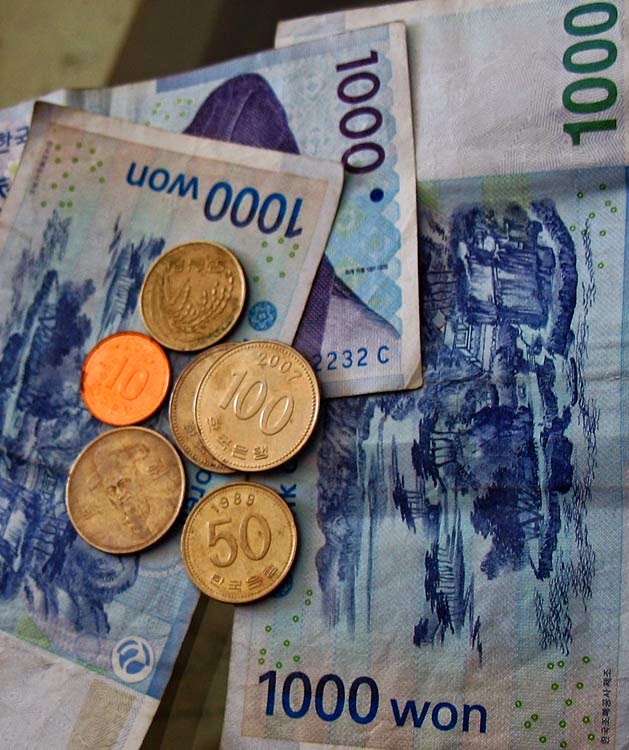

The so-called “dollarization” helped ease inflation and stabilize exchange rates, enabling leader Kim Jong Un to establish a stable hold on power after he inherited that role in late 2011. dollars and Chinese yuan since a bungled revaluation of the won in 2009 triggered runaway inflation and public unrest. North Korea has tolerated the widespread use of more stable foreign currencies like U.S. “Even the quality of North Korean bills was awful as they often ripped when we put them in our pockets.” “There were not many places to use the won, and we actually had little faith in our currency,” Jeon said during a recent interview in Seoul. He used the domestic currency, the won, only occasionally. dollars as a store of value and used Chinese yuan to make everyday purchases at markets, restaurants and other places. The won/yen rate fell 4.5 won to 10.165 won per yen in the same period.SEOUL, South Korea (AP) - Before fleeing North Korea in 2014, Jeon Jae-hyun kept U.S. The won/yuan exchange rate averaged 171.97 won per yuan, up 3.02 won from the prior quarter.

The daily average trading of foreign currencies in the inter-bank market stood at 23.45 billion dollars in the quarter, up 0.38 billion dollars from three months earlier.


The won/dollar exchange rate averaged 1,132.5 won per dollar in the third quarter, up 2.4 won from the previous quarter. The Democratic People's Republic of Korea (DPRK) conducted its sixth and most powerful nuclear test in early September, after test-firing ballistic missiles with intercontinental capability twice in July.Īmid the heightened tensions, the South Korean currency depreciated to the greenback. It marked the lowest since the third quarter of 2014 as investors in the currency market were accustomed to tensions on the peninsula. The daily volatility in the won/dollar exchange rate, or difference between daily high and low, averaged 0.42 percent, or 4.8 won per dollar, in the July-September quarter, down from 5.8 won in the previous quarter, according to the Bank of Korea (BOK). dollar fell to the lowest in three years in the third quarter despite geopolitical risks on the Korean Peninsula, central bank data showed Tuesday. South Korean currency's volatility against the U.S. Korean Currency's Volatility Falls to 3-year Low Despite Geopolitical Risks


 0 kommentar(er)
0 kommentar(er)
